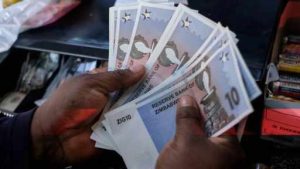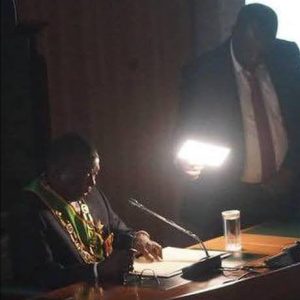
The Zimbabwe Gold (ZiG) experiment seems to be proving its worth with the nation set to see a major boost by the end of 2025.
Zimbabwe’s economy has been impacted by severe inflation since the early 2000s, but officials may be breathing a sigh of relief following a recent Confederation of Zimbabwe Industries (CZI) report, which showed inflation to have dropped from 82.7% in September to 32.7% in October.
The future appears brighter with inflation projected to fall to between 15% and 20% by the end of the year, marking a significant recovery from 2020, when inflation soared past 500%, amid the pandemic.
Introduced by the Reserve Bank of Zimbabwe (RBZ) in April 2024, the rising valuation of ZiG, pegged to foreign currency and precious metals, primarily gold, has been a leading protagonist behind Zimbabwe’s economic resurgence.
According to the International Monetary Fund, the nation’s current GDP is $53.31 billion—up $13.35 billion from 2020.
However, despite the impact of the ZiG, experts seem to be cautious of a recurring theme of volatility.
“The outlook for the ZiG has improved over the near term, supported by elevated gold prices. However, it still has a long way to go before it becomes the sole legal tender for Zimbabwe,” says Lyle Begbie, an economist at Oxford Economics Africa.
“Zimbabwe’s history of hyperinflation and failed monetary experiments means it remains highly dollarized. The U.S. dollar is the main medium of exchange, while the share of ZiG in monetary aggregates is small at around 17%. Prices are rarely quoted in ZiG, and salaries and goods and services transactions are typically either fully or partially paid in U.S. dollars.”
While stabilizing inflation is undoubtedly positive, the landlocked nation will need to remain steadfast regarding other challenges, before unlocking national sovereignty. Zimbabwe’s public debt, which reached $23.2 billion in 2024 (72.9% of GDP), per the World Bank, remains a discouraging barrier to foreign investment.
“Zimbabwe’s debt arrears substantially weigh on its economic growth outlook,” Begbie explains, before adding, “Due to these arrears, the country cannot access concessional funding from multilateral organizations, and is excluded from obtaining any sort of debt relief”.
The World Bank has placed Zimbabwe in non-accrual status since 2000. While massive debt risks stalling momentum, addressing inflation will put that summit within reach. – ForbesAfrica








